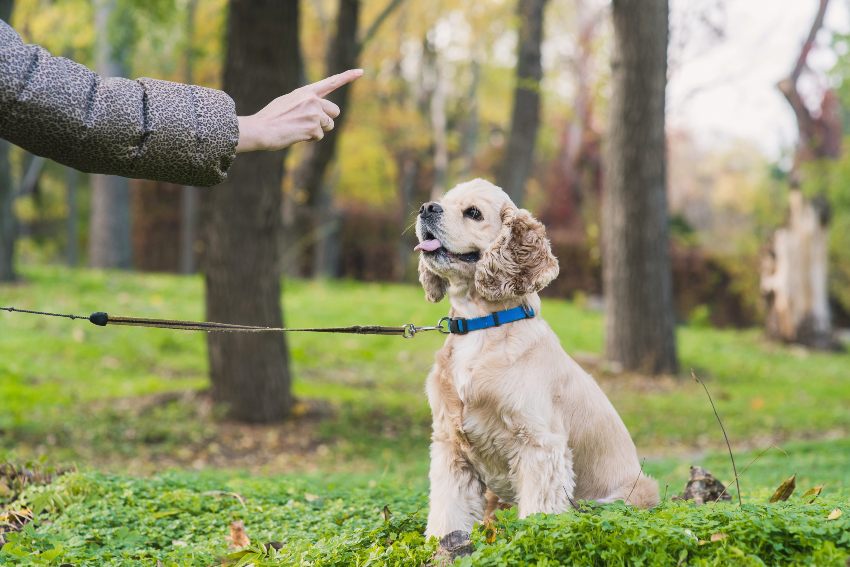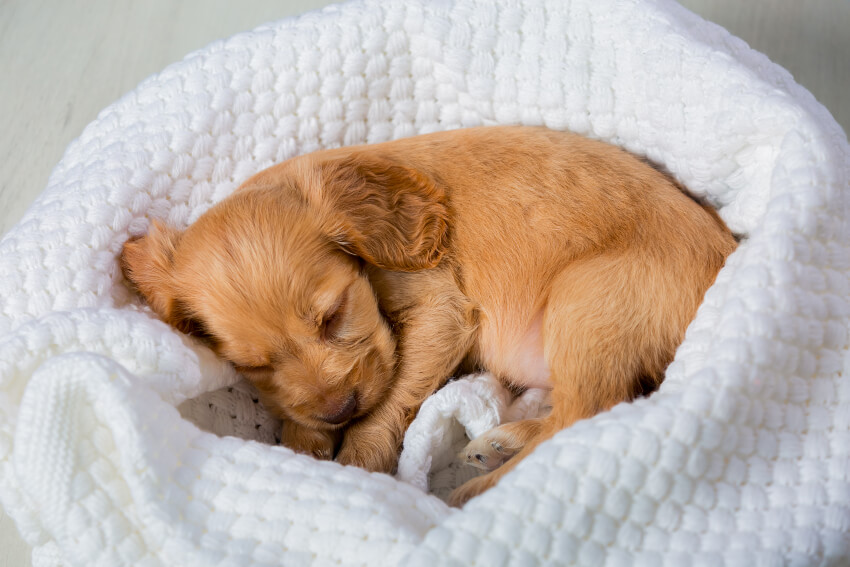Like children, puppies go through several stages of development before they grow up, and one of these stages is teething. Puppy teething is your puppy’s process when baby (milk) teeth fall out and their permanent (adult) teeth settle in.
Puppy teething stages are just like human ones.
Puppies start out with 28 milk teeth (also called baby teeth), and these teeth fall out over time while their permanent teeth erupt. Once your puppy matures into an adult dog, it will have 42 adult teeth.
Now, teething is no accessible business, and it can be painful or irritating for most puppies, and this leads to chewing on anything your puppy gets their chompers on. Nothing is spared from your furbaby’s teeth: furniture, shoes, and toes!
We know your puppy’s teething habits can be annoying, but we promise it’s only temporary! In this blog, we help you understand what your puppy is going through with a quick timeline of your puppy’s teething stages.
2 to 4 weeks old
When your puppy is 2 to 4 weeks old, they depend heavily on its mother and breeder for its well-being. Whether it’s food, warmth, or comfort, your furry friend will only have their mother and caretaker for all their needs.
Along with being blind, their milk teeth are just starting to come in. Don’t worry about your puppy’s teeth during this age period.
5 to 6 Weeks Old
At 5 to 6 weeks old, your puppy should have 28 baby teeth. Your furry friend is also weaned or in the process of weaning.
Weaning is a transitional stage in a puppy’s development, in which it switches from drinking its mother’s milk to eating solid food. Your pup’s breeder is the main person who will help your puppy undergo the weaning process.
12 to 16 Weeks Old
During the 12 to 16-week period, your puppy is independent and ready to go to its new home.
At Furry Babies, we get our puppies at 8 weeks old, to give them some time to adjust with us and their new environment and also to help them form an independent relationship with us.
We also ensure that every puppy receives adequate dental care from a licensed veterinarian before they go home with their new owners. Once your puppy is home with you, you may notice little teeth around your home. Don’t panic!
Like human children, your puppy is shedding their baby teeth so that its permanent teeth settle in. According to The SprucePets, your puppy’s teeth should start falling out at around 8 weeks.
Of course, the teething process is excruciating for your little fur ball. They may start to chew on everything they can sink their teeth into.
Make sure you give your puppy chew toys, puzzle games, or Kong toys to prevent potential destruction of your property. It would help if you also visited the vet to ensure your puppy’s teeth and mouth are okay.
Additionally, your puppy is old enough to start a consistent dental routine. Take your time with the process. Instead, start with the basics.
Hold your puppy near you and open their mouth, touching the outside and in. This helps your puppy grow used to having its mouth opened and touched when brushing its teeth.
Avoid getting nipped or bitten by your furbaby. The teeth are razor-sharp, so if your fingers get caught, this can hurt!
6 Months and Beyond
When your puppy reaches 6 months, all its permanent teeth should have settled in. All dogs have around 42 adult teeth, though this may vary with some breeds.
It’s essential to check that your puppy has no milk teeth left. If left untreated, your puppy’s baby teeth can cause dental problems such as overcrowding and malformation. Your vet will assess your puppy’s mouth and remove any extra baby teeth.
Now that your puppy has adult teeth, it’s your responsibility to keep them pearly white and healthy. We know it’s common for dog owners to forget about their furry friend’s dental health, but we recommend maintaining a routine.
Dogs cannot take care of their teeth, leading to the buildup of plaque and other debris. Without proper dental care, this plaque can develop into tartar, which causes bad breath, dental disease, and even organ damage.
Brushing your puppy’s teeth regularly prevents numerous medical issues that can harm them. As a precaution, ensure the toothpaste you use for your puppy is designed for dogs.
Human toothpaste can make your puppy sick if they swallow it. It would help if you also used a dog toothbrush to brush the corners and outer edges of your puppy’s teeth.
Don’t take it to heart if your puppy bites at your toes or fingers. Teething often causes sore gums, and the only way puppies can alleviate their pain is by chewing everything in sight! Be patient and offer alternatives for your puppy’s comfort.
Remember the tips above when you start your pup’s dental care. Never leave your puppy alone during their early teething stages unless you want a mess inside your house.
If you need to leave, place your puppy in its crate to prevent them from chewing and getting into mischief while you are away.
Also, remember to have fun with your puppy! It’s a frustrating experience for both of you, but there are plenty of ways to make the process less stressful.
For example, establish a dental care routine early on, and this routine can become a bonding experience for both of you. When you understand your puppy’s teeth stages, you’ll be able to help your furry friend make that critical leap from puppyhood to adulthood.
So pack up on chew toys and love your puppy without boundaries so that you can have years of unconditional love and friendship!


